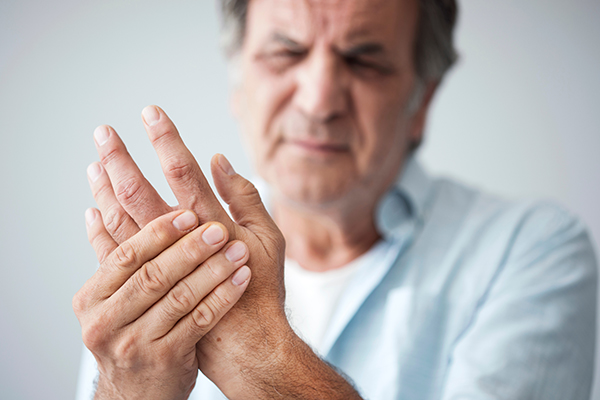When Cancer Damages Your Nerves
What You Can Do about Treatment-Related Peripheral Neuropathy
Some cancer treatments cause peripheral neuropathy, a result of damage to the peripheral nerves. These nerves carry information from the brain to other parts of the body. Side effects depend on which peripheral nerves – sensory, motor, or autonomic – are affected.
Damage to sensory nerves – the nerves that help you feel pain, heat, cold, and pressure – can cause:
- tingling, numbness, or a pins-and-needles feeling in your feet and hands that may spread to your legs and arms
- inability to feel a hot or cold sensation, such as a hot stove
- inability to feel pain, such as from a cut or sore on your foot
Damage to motor nerves – the nerves that help your muscles to move – can cause:
- weak or achy muscles – you may lose your balance or trip easily, and it may also be difficult to button shirts or open jars
- muscles that twitch and cramp or muscle wasting (if you don’t use your muscles regularly)
- swallowing or breathing difficulties (if your chest or throat muscles are affected)
TIP: Let people help you with difficult tasks. Slow down and give yourself more time to do things.
Damage to autonomic nerves – nerves that control functions such as blood pressure, digestion, heart rate, temperature, and urination – can cause:
- digestive changes, such as constipation or diarrhea
- dizzy or faint feeling, due to low blood pressure
- sexual problems – men may be unable to get an erection, and women may not reach orgasm
- sweating problems (either too much or too little sweating)
- urination problems, such as leaking urine or difficulty emptying your bladder
If you start to notice any of the problems listed above, talk with your doctor or nurse. Getting these problems diagnosed and treated early is the best way to control them, to prevent further damage, and to reduce pain and other complications.
Ways to Prevent or Manage Problems Related to Nerve Changes
If you are experiencing peripheral neuropathy due to cancer treatment, your doctor may suggest you take these steps to prevent or manage problems related to nerve changes:
• Prevent falls. Have someone help you prevent falls around the house. Move rugs out of your path so you won’t trip on them. Put rails on the walls and in the bathroom, so you can hold on to them and balance yourself. Put bathmats in the shower or tub. Wear sturdy shoes with soft soles. Get up slowly after sitting or lying down, especially if you feel dizzy.
• Take extra care in the kitchen and shower. Use potholders in the kitchen to protect your hands from burns. Be careful when handling knives or sharp objects. Ask someone to check the water temperature before you wash your hands, shower, or bathe, to make sure it’s not too hot.
• Protect your hands and feet. Wear shoes, both inside and outside. Check your arms, legs, and feet for cuts or scratches every day. When it’s cold, wear warm clothes to protect your hands and feet.
• Ask for help and slow down. Let people help you with difficult tasks. Slow down and give yourself more time to do things.
• Ask about pain medicine and integrative medicine practices. You may be prescribed pain medicine. Sometimes, complementary medicine practices such as acupuncture, massage, physical therapy, and yoga, among others, may also be recommended to help ease the pain associated with peripheral neuropathy. Talk with your healthcare team to learn what treatments and management strategies may work best for you.
Talking with Your Healthcare Team
Questions to Ask Your Healthcare Provider
If you think you may be experiencing peripheral neuropathy – or if your cancer treatment has the potential to cause peripheral neuropathy – you should talk to your healthcare provider about your concerns. Prepare for your visit by making a list of questions to ask. Here are some suggestions:
- What symptoms or problems might I have? Which ones should I call you about?
- When will these problems start? How long might they last?
- What medicine, treatments, and integrative medicine practices could help me to feel better?
- What steps can I take to feel better? What precautions should I take to stay safe?
- Could you refer me to a specialist who could give me more advice?
Source: National Cancer Institute, cancer.gov (January 2020)


